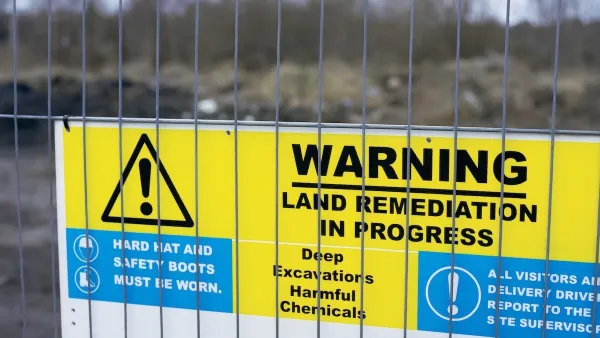Eli Lehrer argues that ending subsidies to high-risk developments, as Florida is about to do, presents a successful small-government environmental preservation measure that also benefits taxpayers.
The governor of Florida is about to sign legislation that "ends state-subsidized insurance for people who build in high-risk coastal areas seaward of an 'Coastal Construction Control Line.'"
Eli Lehrer discusses the move from the point of view of shrinking government to achieve environmental success.
The new bill has its precedents in federal law, including the Coastal Barrier Resources Act and President Reagan's National Forest Wilderness Areas, which focus on preservation, and preserves wetlands, wildlife habitats and natural storm barriers and buffers, while reducing the financial and environmental burden on taxpayers who live inland.
While government regulations and subsidies are necessary to protect air quality and keep pollution under control, reducing the role of government in providing subsidies for high-risk developments benefits both the environment and taxpayers, argues Lehrer.
FULL STORY: Going green, shrinking the state: Florida leads the way

Maui's Vacation Rental Debate Turns Ugly
Verbal attacks, misinformation campaigns and fistfights plague a high-stakes debate to convert thousands of vacation rentals into long-term housing.

Planetizen Federal Action Tracker
A weekly monitor of how Trump’s orders and actions are impacting planners and planning in America.

In Urban Planning, AI Prompting Could be the New Design Thinking
Creativity has long been key to great urban design. What if we see AI as our new creative partner?

Massachusetts Budget Helps Close MBTA Budget Gap
The budget signed by Gov. Maura Healey includes $470 million in MBTA funding for the next fiscal year.

Milwaukee Launches Vision Zero Plan
Seven years after the city signed its Complete Streets Policy, the city is doubling down on its efforts to eliminate traffic deaths.

Portland Raises Parking Fees to Pay for Street Maintenance
The city is struggling to bridge a massive budget gap at the Bureau of Transportation, which largely depleted its reserves during the Civd-19 pandemic.
Urban Design for Planners 1: Software Tools
This six-course series explores essential urban design concepts using open source software and equips planners with the tools they need to participate fully in the urban design process.
Planning for Universal Design
Learn the tools for implementing Universal Design in planning regulations.
Gallatin County Department of Planning & Community Development
Heyer Gruel & Associates PA
JM Goldson LLC
City of Camden Redevelopment Agency
City of Astoria
Transportation Research & Education Center (TREC) at Portland State University
Jefferson Parish Government
Camden Redevelopment Agency
City of Claremont





























